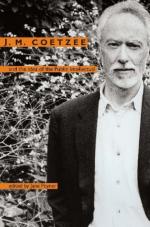|
This section contains 2,818 words (approx. 10 pages at 300 words per page) |

|
SOURCE: "J. M. Coetzee's Foe: A Culmination and a Solution to a Problem of White Identity," in World Literature Today, Vol. 64, No. 1, Winter, 1990, pp. 54-7.
In the following essay, Bishop questions the veracity of the authorial voice in postcolonial literature written in English and pinpoints Foe as a successful example of this questioning in a textual context.
Ngugi wa Thiong'o, in "The Language of African Literature," argues that African children should be taught African literature in their own African languages to preserve the cultural identity that colonization sought to destroy. A paradoxically similar assertion can be made for students of English literature. If by studying English literature we are studying our cultural identity, then we must also read postcolonial literature written in English. As Michel Foucault, Edward Said, and many feminists including Nina Auerbach, Margaret Homans, Sandra Gilbert, and Susan Gubar have shown, our cultural identity has resulted...
|
This section contains 2,818 words (approx. 10 pages at 300 words per page) |

|


